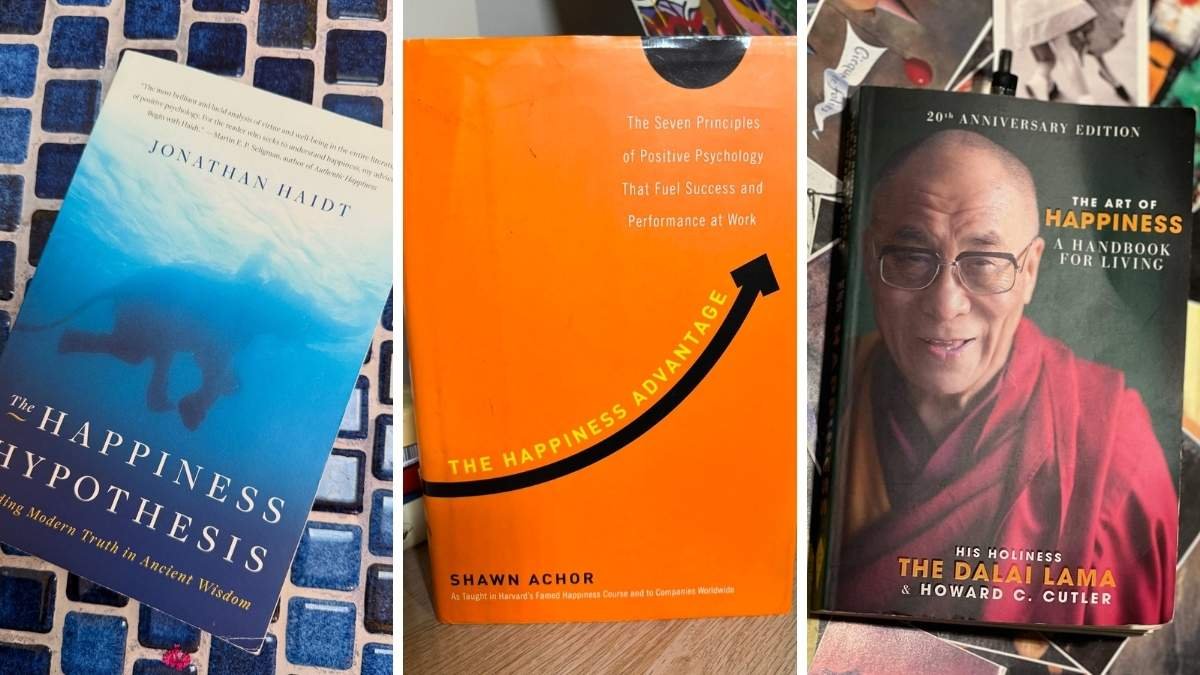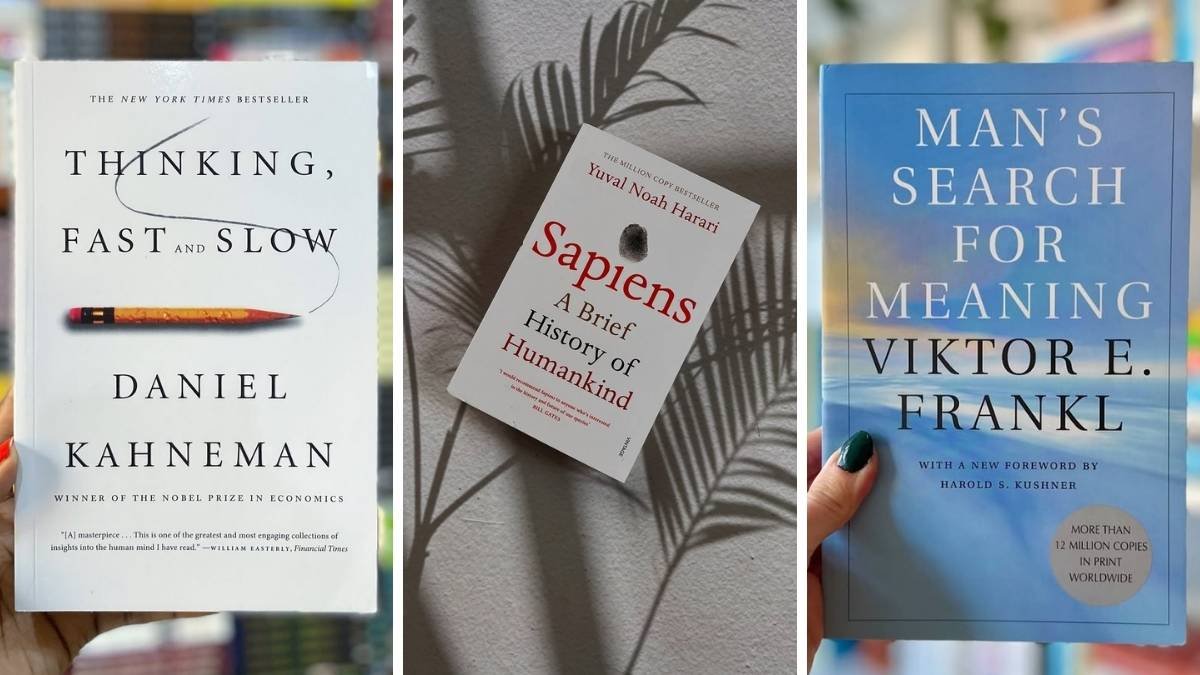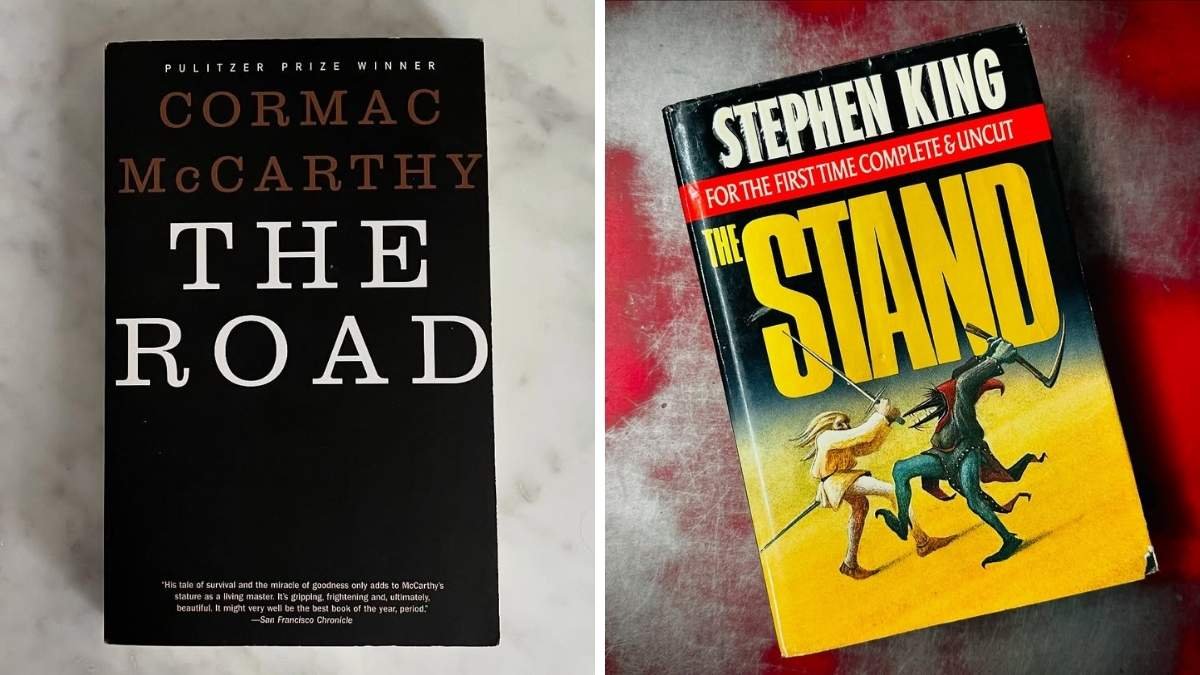
Becoming a “better human” isn’t about mastering a checklist of virtues or adopting a specific lifestyle—it’s about growing into someone kinder, wiser, and more resilient. But where do you even start? Enter the power of books.
Science shows that reading can rewire our brains, boost empathy, and help us tackle everything from stress to ethical dilemmas. Below are 14 science-backed reads that’ll challenge you to evolve—and yes, I’ve prioritized the most iconic ones first.
1. “The Power of Kindness” by Piero Ferrucci

“Kindness is the key that unlocks the door to a better world.”
Piero Ferrucci’s book is a deep dive into the transformative power of kindness. Drawing on psychology, neuroscience, and philosophy, Ferrucci argues that kindness isn’t just a virtue—it’s a fundamental aspect of human nature. He explores how acts of kindness can rewire our brains, reducing stress and increasing feelings of well-being. Research shows that when we perform acts of kindness, our brains release oxytocin and serotonin, hormones that promote happiness and reduce anxiety. For example, volunteering or helping a neighbor can boost your mood and create a ripple effect of positivity. Ferrucci’s book is a compelling case for making kindness a cornerstone of our daily lives.
Why it matters: Kindness isn’t just good for others—it’s good for you. By cultivating kindness, you can improve your mental health and build stronger, more meaningful relationships.
2. “The Social Animal” by David Brooks

“We are social creatures, and our relationships shape who we are.”
David Brooks’s book offers a fascinating look at how our social interactions influence our behavior and well-being. Brooks weaves together stories, research, and personal anecdotes to show how relationships are the key to a fulfilling life. He explores how our brains are wired for connection and how social bonds can buffer us against stress and adversity. For example, studies show that people with strong social support networks live longer and healthier lives. Brooks’s book is a reminder that our connections with others are not just nice to have—they’re essential.
Why it matters: Our relationships are the foundation of our well-being. By nurturing these connections, we can build resilience and find greater meaning in life.
3. “The Upward Spiral” by Alex Korb

“Small changes can lead to big improvements in your mood and well-being.”
Alex Korb’s book is a practical guide to improving your mental health through small, science-backed changes. Korb, a neuroscientist, explains how our brains are wired to seek pleasure and avoid pain, and how we can harness this wiring to create positive habits. He offers actionable tips, such as practicing gratitude, exercising, and getting enough sleep, all of which are supported by research. For example, studies show that just a few minutes of gratitude journaling each day can significantly boost your mood. Korb’s book is a roadmap for anyone looking to break out of a negative spiral and build a happier, healthier life.
Why it matters: Small changes can have a big impact. By understanding how your brain works, you can make targeted changes that improve your overall well-being.
4. “The Brain That Changes Itself” by Norman Doidge

“Our brains are capable of remarkable change and growth.”
Norman Doidge’s book is a groundbreaking exploration of neuroplasticity, the brain’s ability to change and adapt throughout life. Doidge shares numerous case studies of individuals who have overcome seemingly insurmountable challenges through targeted brain training. He explains how neuroplasticity can be harnessed to improve memory, reduce anxiety, and even heal from trauma. For example, studies show that cognitive-behavioral therapy can rewire the brain’s neural pathways, leading to lasting improvements in mental health. Doidge’s book is a testament to the brain’s incredible capacity for change.
Why it matters: Understanding neuroplasticity empowers you to take control of your mental health. By learning how to rewire your brain, you can overcome obstacles and build a more resilient mind.
5. “The Happiness Advantage” by Shawn Achor

“Happiness is a choice, and it can lead to greater success.”
Shawn Achor’s book challenges the common belief that success leads to happiness. Instead, he argues that happiness leads to success. Drawing on research in positive psychology, Achor explains how cultivating a positive mindset can improve productivity, creativity, and resilience. He offers practical strategies, such as practicing gratitude, meditating, and focusing on strengths, all of which are supported by scientific studies. For example, research shows that people who practice gratitude experience higher levels of job satisfaction and lower levels of burnout. Achor’s book is a powerful reminder that happiness is a choice we can make every day.
Why it matters: Happiness isn’t just a byproduct of success—it’s a driver of it. By cultivating a positive mindset, you can unlock your full potential and achieve greater success in all areas of life.
6. “Man’s Search for Meaning” by Viktor Frankl

“Life is not about finding the right answers, but about finding the right questions.”
Viktor Frankl’s harrowing yet inspiring account of his time in Nazi concentration camps isn’t just a memoir—it’s a profound exploration of human resilience. Frankl introduces logotherapy, a psychological approach that emphasizes finding meaning in life as the primary driver of mental health. Unlike traditional psychoanalysis, which focuses on past traumas, logotherapy asks: What gives your life purpose? Studies have shown that individuals who find meaning in their suffering are less likely to experience depression and anxiety. For example, Frankl’s own experience of losing everything yet finding purpose in helping fellow prisoners illustrates how meaning can sustain us even in the darkest times.
Why it matters: Purpose drives motivation and well-being. When you know why you’re doing something, even the toughest challenges feel surmountable.
7. “The Alchemist” by Paulo Coelho

“When you want something, all the universe conspires in helping you to achieve it.”
This modern fable follows Santiago, a shepherd boy on a quest to fulfill his dreams. Coelho weaves in themes of destiny, courage, and the importance of listening to your heart. The book’s charm lies in its simplicity, yet its message is profound: Follow your passion. Research in positive psychology supports this idea, showing that pursuing intrinsic goals (those driven by personal fulfillment) leads to greater happiness and satisfaction. Santiago’s journey isn’t just about finding treasure; it’s about discovering his true self. If you’ve ever hesitated to chase a dream, The Alchemist is a gentle nudge to take that leap.
Why it matters: Passion fuels perseverance. When you’re aligned with your inner desires, obstacles become stepping stones.
8. “Sapiens: A Brief History of Humankind” by Yuval Noah Harari

“We are the only animals that can cooperate flexibly in large numbers.”
Harari’s sweeping narrative takes us from the dawn of humanity to the present day, exploring how our species has shaped the world. From the Cognitive Revolution to the Agricultural Revolution, he shows how cultural myths and shared beliefs have driven human progress. For example, money, laws, and religions are all constructs that exist only in our collective imagination. Understanding these myths helps us see how societal structures influence our behavior. Research in evolutionary psychology supports Harari’s thesis, revealing that our ability to cooperate in large groups is a unique human trait. This book isn’t just history—it’s a mirror reflecting our collective psyche.
Why it matters: Knowing our past helps us navigate our future. Understanding the forces that shaped humanity can guide us to build a better tomorrow.
9. “The Gifts of Imperfection” by Brené Brown

“Perfection is not human, but striving for perfection is.”
Another gem from Brené Brown, this book builds on her work in vulnerability by focusing on self-acceptance. Brown argues that perfectionism is a shield we use to protect ourselves from judgment, but it often leads to burnout and unhappiness. Instead, she advocates for wholehearted living, embracing our flaws and imperfections. Research shows that self-compassion (treating yourself with kindness) reduces anxiety and depression. For instance, if you make a mistake at work, instead of berating yourself, try acknowledging the error and learning from it. This book is a powerful reminder that authenticity is the key to genuine connection.
Why it matters: Self-acceptance frees us from the tyranny of perfectionism, allowing us to live more authentically and joyfully.
10. “The Four Agreements” by Don Miguel Ruiz

“You are the creator of your life.”
Ruiz’s deceptively simple book offers profound wisdom rooted in ancient Toltec philosophy. The Four Agreements—Be impeccable with your word, Don’t take anything personally, Don’t make assumptions, and Always do your best—are practical guidelines for living a fulfilled life. Each agreement is backed by psychological principles. For example, not taking things personally reduces unnecessary stress and conflict. Studies show that people who practice emotional detachment (not internalizing others’ actions) experience lower levels of anxiety. Ruiz’s book is like a daily reminder to stay grounded in your truth.
Why it matters: These agreements provide a blueprint for emotional resilience and personal growth. By adopting them, you can navigate life’s challenges with grace and clarity.
11. “The Happiness Hypothesis” by Jonathan Haidt

“Happiness comes from between.”
Jonathan Haidt’s book is a fascinating blend of psychology, philosophy, and science. He explores ten great ideas from thinkers like Socrates, Buddha, and Freud, examining how these ancient concepts align with modern research. One key idea is that happiness isn’t a state but a journey. Haidt argues that our minds are like elephants with riders: the elephant (our emotions) often drives our actions, while the rider (our rational mind) tries to steer it. Studies in positive psychology support this, showing that cultivating gratitude, mindfulness, and strong social bonds enhances well-being. For example, keeping a gratitude journal can significantly boost your mood. Haidt’s book is a practical guide to understanding and improving your mental health.
Why it matters: Understanding the interplay between our emotions and rational thoughts helps us navigate life’s ups and downs more effectively.
12. “The Body Keeps the Score” by Bessel van der Kolk

“Trauma lives in our bodies, not just our minds.”
This groundbreaking book by Bessel van der Kolk delves into the science of trauma and its profound impact on our bodies and minds. Van der Kolk explains how traumatic experiences can alter brain function and physical health, leading to chronic stress, anxiety, and even physical ailments. He advocates for holistic healing, incorporating techniques like yoga, mindfulness, and neurofeedback to help trauma survivors reclaim their lives. Research in neurobiology supports this, showing that trauma affects the amygdala, hippocampus, and prefrontal cortex. For example, yoga has been shown to reduce PTSD symptoms by calming the nervous system. This book is essential reading for anyone seeking to understand and heal from trauma.
Why it matters: Healing from trauma requires more than talk therapy. Understanding the body’s role in trauma can lead to more effective and comprehensive recovery.
13. “The Art of Happiness” by the Dalai Lama and Howard C. Cutler

“Happiness is not something ready-made. It comes from your actions.”
This unique collaboration between the Dalai Lama and a Western psychiatrist offers timeless wisdom on cultivating happiness. The Dalai Lama shares his personal experiences and Buddhist teachings, while Cutler grounds these ideas in scientific research. One key takeaway is that happiness is a skill that can be developed through practices like compassion, mindfulness, and ethical living. Studies in positive psychology confirm that these practices enhance well-being. For example, practicing loving-kindness meditation can increase feelings of social connection and reduce loneliness. This book is a gentle guide to finding joy and purpose in everyday life.
Why it matters: Happiness isn’t a destination but a journey. By cultivating positive habits, we can improve our mental health and relationships.
14. “The Road Less Traveled” by M. Scott Peck

“Life is difficult. Once we truly understand and accept this, life is no longer difficult.”
Peck’s classic book is a profound exploration of personal growth and spiritual development. He argues that life’s difficulties are opportunities for growth and that true happiness comes from facing these challenges head-on. Peck emphasizes the importance of discipline, love, and commitment in achieving mental health. Research in psychology supports his ideas, showing that resilience and perseverance are key to overcoming adversity. For example, setting and achieving small goals can build self-efficacy and reduce feelings of helplessness. This book is a timeless guide to navigating life’s complexities with grace and wisdom.
Why it matters: Embracing life’s challenges helps us build resilience and find deeper meaning in our experiences. By facing difficulties, we grow stronger and more compassionate.







